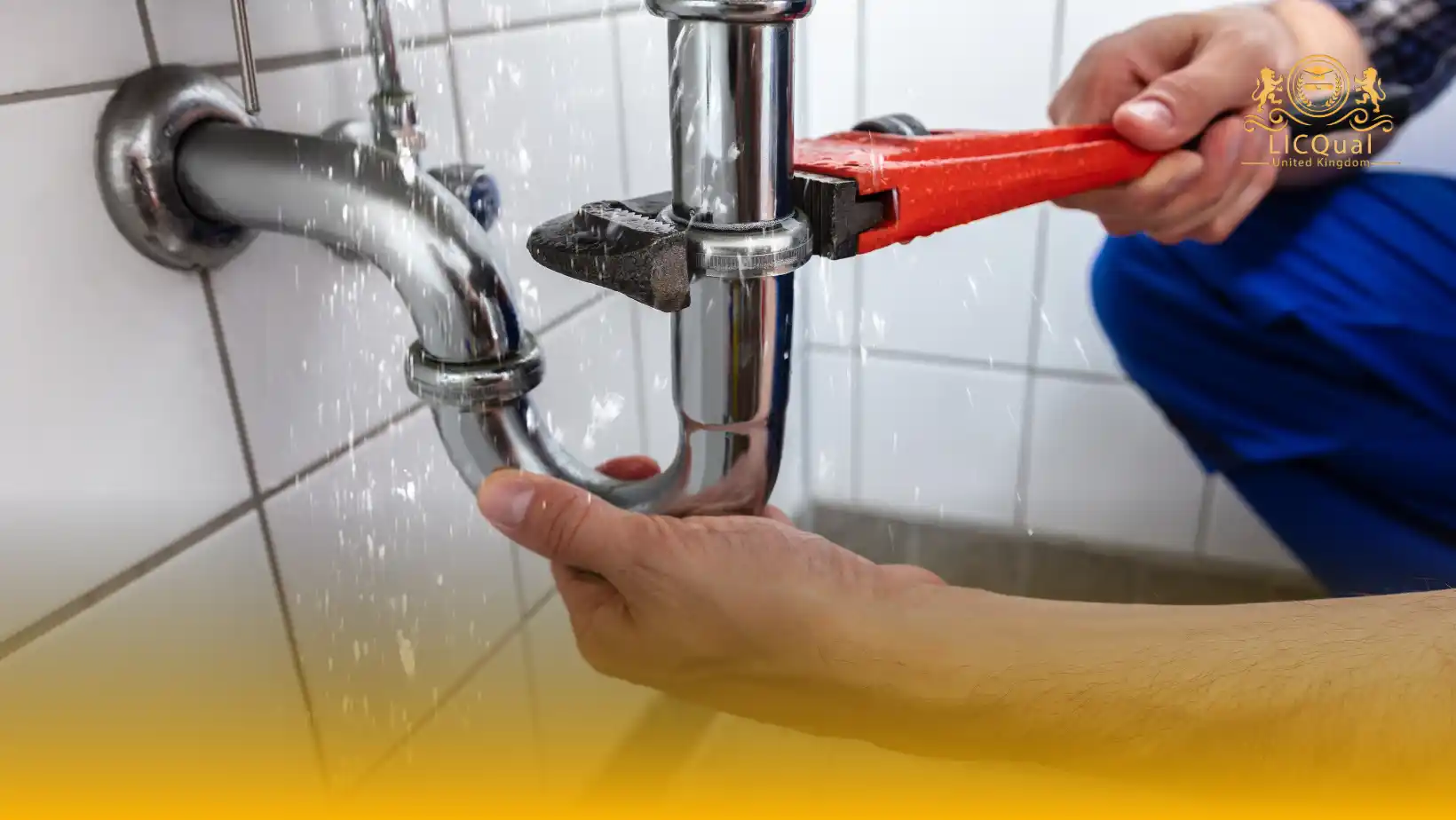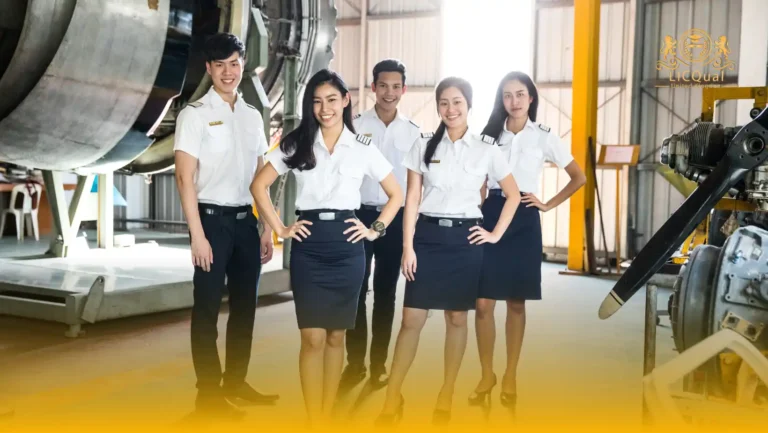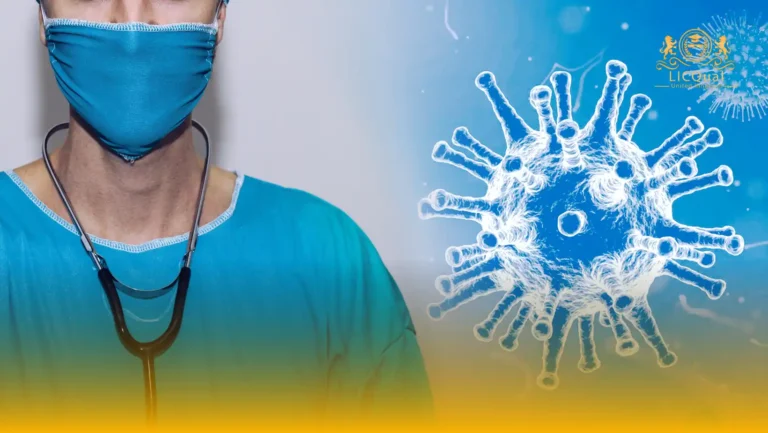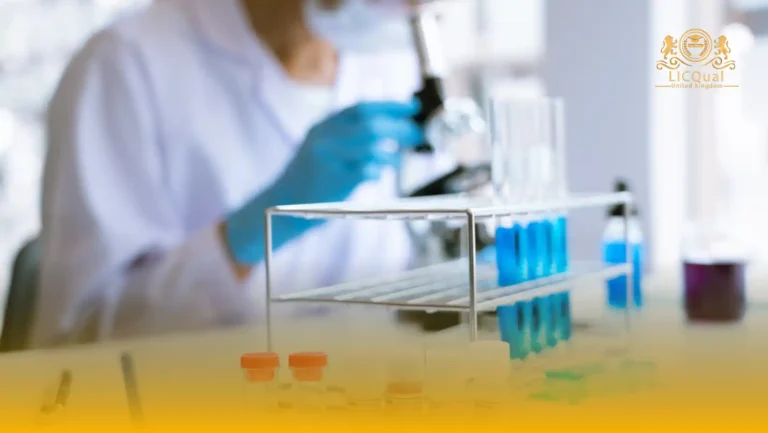Kickstart your career in the piping industry with the LICQual Level 3 Certificate in QC Piping Inspector, a globally recognized qualification designed to equip you with the essential skills to excel as a quality control (QC) inspector. This course is perfect for beginners and early-career professionals aiming to ensure the safety, reliability, and compliance of piping systems in high-demand sectors like oil and gas, petrochemicals, and construction.
With a focus on practical, industry-relevant training, you’ll learn to perform inspections, identify defects, and uphold quality standards, making you a valuable asset in piping projects worldwide. Enroll today to gain a prestigious certification that opens doors to exciting career opportunities.
This engaging program offers clear, accessible modules led by industry experts, combining theoretical knowledge with hands-on applications. From understanding piping systems to mastering inspection techniques and safety practices, the LICQual Level 3 Certificate prepares you to tackle real-world challenges with confidence.
Flexible learning options—online, in-person, or blended—make it easy to balance your studies with your schedule, whether you’re new to the field or seeking to enhance your skills. Start your journey now to become a skilled QC piping inspector and make a lasting impact in the industry.
The LICQual Level 3 Certificate in QC Piping Inspector provides a comprehensive foundation for mastering quality control inspection in piping systems, preparing you for critical roles in industries such as energy, infrastructure, and manufacturing. This course covers essential topics, including piping system components, material selection, visual inspection techniques, basic non-destructive testing (NDT), and health, safety, and environmental practices.
You’ll also explore slinging and lifting operations, risk assessment, and compliance with international standards like ASME, API, and ISO. Through practical exercises, case studies, and real-world simulations, you’ll develop the skills to ensure piping systems meet stringent quality and safety requirements.
Designed for flexibility, this program caters to both newcomers and professionals looking to specialize in QC inspection, with online and blended learning formats to suit busy schedules. Upon completion, you’ll earn a globally respected LICQual Level 3 Certificate, validating your expertise as a QC piping inspector and boosting your career prospects.
Whether you’re aiming to enter the piping industry or advance your skills in quality control, this course equips you with the tools to succeed in a competitive, fast-evolving field. Join now to build a rewarding career as a QC piping inspector.
Course Overview
Qualification Title
LICQual Level 3 Certificate in QC Piping Inspector
Total Units
6
Total Credits
24
GLH
120
Qualification #
LICQ2200543
Qualification Specification
To enroll in the LICQual Level 3 Certificate in QC Piping Inspector applicants must meet the following criteria:
|
Qualification# |
Unit Title |
Credits |
GLH |
|---|---|---|---|
|
LICQ2200543-1 |
Fundamentals of Piping Systems and Inspection Principles |
4 |
20 |
|
LICQ2200543-2 |
Introduction to Piping Materials, Fittings, and Components |
4 |
20 |
|
LICQ2200543-3 |
Basics of Welding Processes and Joint Inspection |
4 |
20 |
|
LICQ2200543-4 |
Piping Drawings, Symbols, and Isometric Reading |
4 |
20 |
|
LICQ2200543-5 |
Visual Inspection Techniques and Defect Identification |
4 |
20 |
|
LICQ2200543-6 |
Safety, Health, and Environmental Considerations in Piping Inspection |
4 |
20 |
By the end of this course, applicants will be able to:
1. Fundamentals of Piping Systems and Inspection Principles
- Explain the core components and functions of piping systems in industries such as oil and gas, petrochemicals, and construction.
- Describe the principles of quality control inspection and their importance in ensuring the safety and reliability of piping systems.
- Identify the roles and responsibilities of a QC piping inspector in maintaining compliance with project and industry standards.
- Apply basic inspection methodologies to monitor and verify the quality of piping systems during installation and operation.
2. Introduction to Piping Materials, Fittings, and Components
- Identify common piping materials, fittings, and components, such as pipes, valves, and flanges, and their applications in various industries.
- Explain the properties of piping materials (e.g., carbon steel, stainless steel) and their suitability for specific environmental and operational conditions.
- Assess the quality of fittings and components to ensure they meet project specifications and industry standards.
- Demonstrate knowledge of material selection processes to support effective quality control in piping inspections.
3. Basics of Welding Processes and Joint Inspection
- Describe common welding processes used in piping systems, including TIG, MIG, and arc welding, and their impact on joint quality.
- Conduct inspections of welded joints to identify defects such as cracks, porosity, or incomplete fusion, ensuring compliance with quality standards.
- Apply basic welding inspection techniques to verify weld integrity and adherence to welding procedure specifications (WPS).
- Recommend corrective actions for weld imperfections to maintain the structural integrity of piping systems.
4. Piping Drawings, Symbols, and Isometric Reading
- Interpret piping drawings and isometric diagrams to identify components, dimensions, and specifications accurately.
- Recognize standard symbols and annotations used in piping drawings to support inspection and quality control processes.
- Apply isometric reading skills to verify the alignment and configuration of piping systems during inspections.
- Evaluate piping layouts against design drawings to ensure compliance with project requirements and quality standards.
5. Visual Inspection Techniques and Defect Identification
- Perform visual inspections of piping systems using appropriate tools and techniques to identify surface defects and non-conformities.
- Identify common piping defects, such as corrosion, misalignment, or surface cracks, and assess their impact on system performance.
- Document visual inspection findings accurately, including detailed reports on defects and recommended corrective actions.
- Apply industry best practices to ensure thorough and effective visual inspections in piping quality control.
6. Safety, Health, and Environmental Considerations in Piping Inspection
- Identify health, safety, and environmental (HSE) risks associated with piping inspection activities and implement mitigation strategies.
- Apply safe work practices during inspections to ensure a secure working environment for all personnel involved.
- Explain the environmental impact of piping operations and adopt sustainable practices to minimize waste and emissions.
- Ensure compliance with HSE regulations and industry standards to maintain a safe and environmentally responsible inspection process.
This course is designed for:
- Aspiring QC Piping Inspectors
Individuals seeking to enter the field of quality control inspection in piping systems across industries such as oil & gas, construction, and petrochemicals. - Technical and Engineering Students
Recent graduates or diploma holders in mechanical, industrial, or petroleum engineering who want to gain a specialized certification. - Welders, Pipe Fitters, and Fabricators
Skilled workers aiming to move into inspection and quality roles for better career opportunities and professional growth. - Site Technicians and Helpers
Field workers with basic experience in piping or mechanical works who want to formalize their knowledge through certification. - Supervisors and Foremen
On-site personnel responsible for monitoring piping installations and ensuring compliance with quality standards. - Quality Assistants and Trainees
Individuals already working in QA/QC departments who want to upgrade their qualifications and practical skills. - HSE Support Staff
Safety professionals who wish to integrate basic quality control knowledge into their safety practices. - Contractor and Vendor Staff
Employees of subcontractors or vendors involved in piping supply, fabrication, or erection, who require quality awareness. - Career Switchers
Individuals from other technical backgrounds looking to transition into the high-demand field of piping quality control. - Job Seekers for Gulf and International Projects
Candidates preparing for QA/QC roles abroad, especially in oil & gas and construction projects where certification is essential.
Assessment and Verification
All units within this qualification are subject to internal assessment by the approved centre and external verification by LICQual. The qualification follows a criterion-referenced assessment approach, ensuring that learners meet all specified learning outcomes.
To achieve a ‘Pass’ in any unit, learners must provide valid, sufficient, and authentic evidence demonstrating their attainment of all learning outcomes and compliance with the prescribed assessment criteria. The Assessor is responsible for evaluating the evidence and determining whether the learner has successfully met the required standards.
Assessors must maintain a clear and comprehensive audit trail, documenting the basis for their assessment decisions to ensure transparency, consistency, and compliance with quality assurance requirements.







